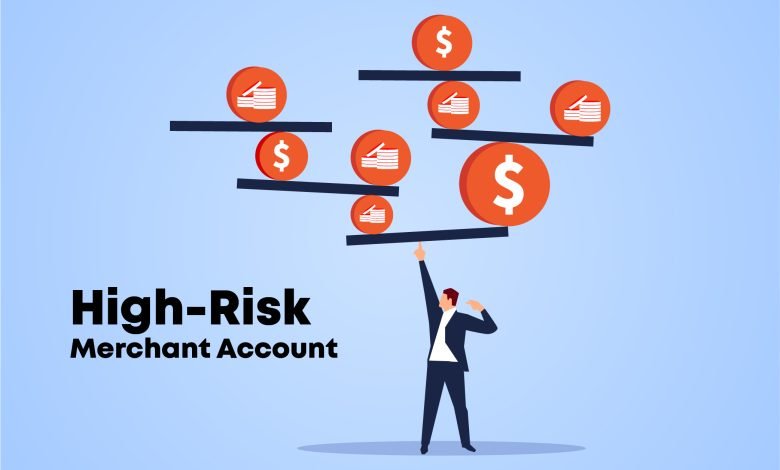High Risk Merchant Highriskpay.com – Discover Your Path To Success!

In the business world, taking chances is common, and if you’re in a risky industry, having the best financial partner is really important. A high risk merchant account at highriskpay.com is like a special bank account for businesses that do things that are considered riskier. These businesses often have a higher chance of customers canceling payments or trying to Hdhubu4u cheat.
Come with us to discover new opportunities for your high-risk business. Stay tuned!
How It Operates – A Comprehensive Overview!
Application: First, the business applies for a high risk merchant account at highriskpay.com. This involves giving some extra information and showing they can handle the extra high risk merchant account at highriskpay.com.
Approval: Then a special bank or payment company looks at the application. And decides if the business can have a high-risk account. If approved, they get one.
Accepting Payments: With this special account, the business can now accept payments. Usually through credit cards or digital methods. Customers can buy products or services and pay online.
Higher Fees: Using a high risk merchant account at highriskpay.com often costs more than a regular account. It’s like paying extra for a service because of the extra risks involved.
Advanced Fraud Protection: high risk merchant account at highriskpay.com come with tools to protect against fraud. Moreover, they help the business identify and stop any shady or dishonest transactions.
Handling Chargebacks: When a customer asks for their money back, it’s called a chargeback. High-risk accounts are set up to handle these situations more effectively. So, the business doesn’t lose too much money high risk merchant account at highriskpay.com.
Determining High-Risk Merchants- Take A Look!
CBD, e-cigarettes, and vape shops: They sell products that come with health concerns and changing laws.
Stun guns and tasers: These are seen as risky because they can be dangerous.
Credit repair companies: Some might not keep their promises, so they’re considered risky.
Multilevel Marketing (MLM): These companies can be seen as risky due to the potential for scams.
Adult products/services: Anything related to adult content can lead to disputes and legal problems.
Pawnshops: They deal with used items and loans, which can lead to financial issues.
Supplement and nutraceutical sellers: There can be concerns about product quality and effectiveness.
Tech support services: These can be risky because some might try to scam people.
Search Engine Optimization (SEO) services: These businesses can be risky due to the potential for unethical practices.
In addition to these businesses, there are other things that can make a business risky:
- If a business is brand new and has never accepted payments before, it can be seen as risky.
- Having a history of not paying back loans or having a low credit score can make a business risky.
- If a payment processor has previously put a business on the MATCH list. That is the list of businesses with issues. So, it can increase the perception of risk.
- Selling products that are controversial or operate in a legal gray area can make a business risky.
- If a business relies heavily on selling to other countries, it can be risky. Because the economic situation in other countries can be unpredictable.
- Some businesses are seen as risky simply because they are heavily regulated by the government.
Pros And Cons Of High-Risk Merchant Account -Unlock The Risk!
| Advantage | Disadvantages |
| 1. Access to Payment Processing: High-risk businesses can accept payments, even if they might be declined by regular banks. | 1. Higher Fees: High-risk accounts typically come with higher fees compared to standard accounts. |
| 2. Advanced Fraud Protection: High-risk merchant accounts often provide robust tools.And services to prevent fraud, helping protect the business. | 2. Stricter Underwriting: Getting a high-risk merchant account is a bit tougher. Businesses need to meet stricter rules and give more papers and information. |
| 3. Handling Chargebacks: These accounts are designed to better manage chargebacks, reducing their financial impact on the business. | 3. Reputational Risk: High-risk businesses might suffer from a damaged reputation. That leads to more customer arguments and refund requests. |
| 4. Expertise and Support: Companies that focus on high-risk businesses know a lot about those industries. They can help businesses deal with the tricky rules and problems related to those industries. | 4. Regulatory Complexities: High-risk industries often have to deal with complex and ever-changing regulations. That adds an extra layer of risk. |
| 5. Acceptance for Risky Industries: It enables businesses in high-risk sectors, such as adult content or gambling. To access payment processing services. | 5. Market Volatility: High-risk businesses, like cryptocurrency exchanges, may face losses. This is due to market volatility, leading to disputes and chargebacks. |
| 6. Options for New Businesses: Even new businesses can obtain high risk merchant account at highriskpay.com, providing them with payment processing services. | 6. Struggles for New Businesses: New businesses in high-risk industries may still face challenges, and the fees can be a burden. |
What Sets High-Risk Accounts Apart from Standard Ones for Payment Processors?
High-Risk Accounts:
1. These are for businesses in riskier industries. That includes adult content or gambling, where there’s a higher chance of problems.
2. They often have more rules and might need to pay high risk merchant account at highriskpay.com fees.
3. High-risk merchant accounts come with extra tools to protect against fraud. Because there’s a greater risk of dishonest transactions.
4. Businesses with these accounts can handle more customer disputes. Like when customers want their money back.
Regular Accounts:
1. These are for most businesses, like your local store or a restaurant, where there are fewer payment problems.
2. They usually have fewer rules and lower fees.
3. Regular accounts might not have as many fraud protection tools. Because there’s less risk.
4. Businesses with regular accounts deal with fewer customer disputes.
What To Do If You Need A Payment Processor – Let’s Take A Look!
Research Special Providers:
This means you should look for companies that are really good at assisting businesses. Like yours that have trouble with payments. These companies understand the problems you might run into. And they have smart ways to solve those problems. It’s a bit like finding a doctor when you’re sick. So, you want someone who knows how to help you feel better.
Gather Necessary Documents:
You need to collect and be prepared to show important papers and information about your business. This might include things like documents that show how much money your business has. And a detailed plan that explains how your business operates. It’s a bit like getting your important schoolwork ready to show to your teacher. Hence, you need to have it all organized and ready to share.
Prepare for Higher Costs:
When you have a high-risk merchant account, it can cost more. You should be ready to pay a little extra for their services. That’s kind of like when you choose a fancier ticket for a special show or event. Which usually costs more than a regular one. So, you need to have some extra money set aside for this.
Enhance Security:
Make your business as safe and protected as possible. This reduces the chances of problems like fraud or arguments. Moreover, it’s like adding strong locks to your doors and making sure everything runs smoothly.
Build a Good Reputation:
Show that your business can be trusted and is reliable. Positive customer feedback and a good history can make the payment company more likely to work with you.
Be Patient:
Sometimes, it might take a little longer to get a high-risk account. But if you follow the right steps and stay patient. Then you’ll find a payment processor willing to work with your business.
Frequently Asked Questions
How to Find a High-risk Merchant Services Provider?
To find a company that can assist businesses with payment challenges. You can start by searching online, and asking other business owners for recommendations. As well as reading reviews, comparing fees, and getting in touch with the companies you’re interested in. And make sure you have a written deal.
Is Stax suitable for businesses that are considered high-risk?
No, Stax primarily serves low and medium-risk businesses. They may not be the best option for high-risk businesses. They often require specialized services and expertise to handle their unique challenges. It’s important to explore providers with a focus on high-risk industries for better support.
Conclusion:
To sum it up,
A high-risk merchant account acts as a safety net for businesses operating in riskier industries. It facilitates payment processing and helps manage challenges. That includes funds and fraud. However, it’s essential to note that high-risk accounts typically come at a higher cost. Due to the extra services they provide.





